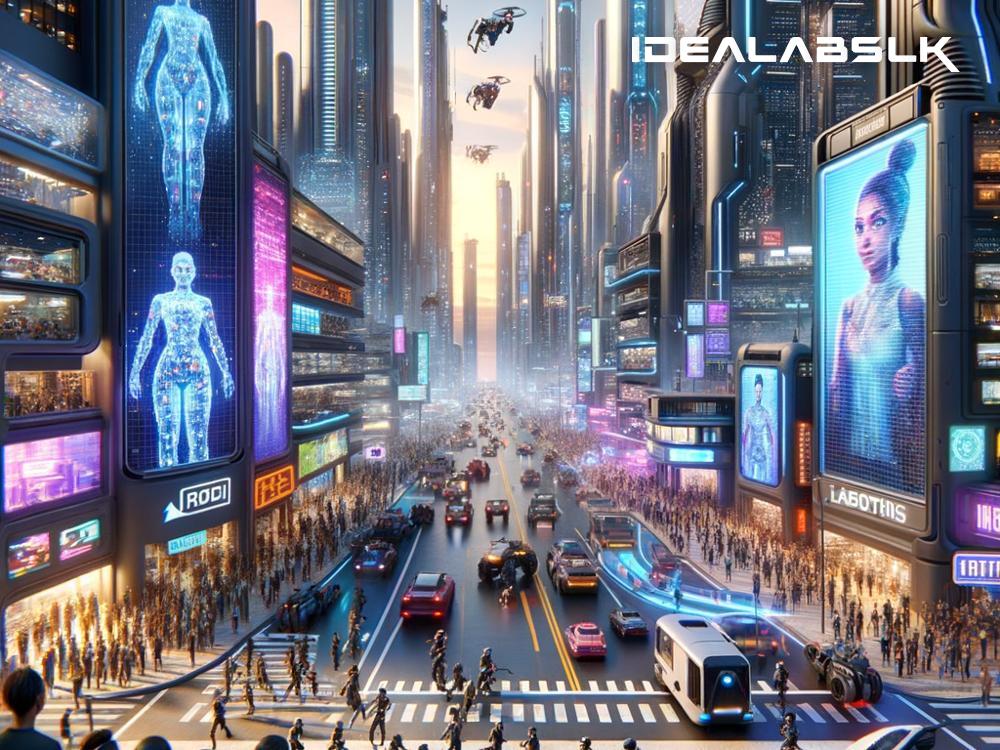The Impact of AI in Open-World Games: A Look Ahead to 2025
In the world of video games, open-world games stand out. These are games where you can roam freely through a virtual world, taking on quests, battling enemies, or just exploring. But as we look towards 2025, a key player is changing the game: Artificial Intelligence, or AI. So, let's dive into how AI is transforming open-world games, making them more immersive, challenging, and alive.
AI Makes the World Feel Real
Imagine walking through a bustling city in a game, where every character you meet has their own daily routine, reacts to the weather, and remembers if you've helped them or not. This is becoming possible thanks to AI. By 2025, AI in games is expected to create characters that learn and evolve, making the game world feel much more alive. Instead of scripted responses, AI can enable characters to have unique reactions based on a player's actions, making the experience feel personal and real.
More Clever and Challenging Enemies
Battling enemies in open-world games is getting a serious upgrade. With AI, enemies can adapt to your fighting style, making battles more challenging and exciting. For example, if you're someone who likes sneaking around and taking enemies out from a distance, the game's AI could adapt, making enemies more vigilant and harder to surprise. This keeps the game engaging, pushing players to constantly evolve their strategies.
Dynamic and Evolving Worlds
One of the promises of AI in open-world games is dynamic worlds that change based on your actions. If you decide to help a village defend against attackers, that village might grow and prosper, offering you new opportunities and challenges. On the flip side, ignoring cries for help could lead to a village's downfall. AI can manage these changes seamlessly, making your choices feel impactful and meaningful.
Personalized Gaming Experiences
AI is paving the way for games that adapt to how you play, offering a tailored experience. If you love exploring, the AI could generate more hidden treasures and secret locations for you to discover. Prefer story-driven quests? The AI might introduce more characters with deep backstories and complex problems for you to solve. This level of customization ensures that no two gamers have the same experience, even if they're playing the same game.
Overcoming the Language Barrier
Imagine playing a game in your native language, no matter how widely it's spoken. AI language models are making this possible, offering real-time translation and even lip-syncing for game characters in multiple languages. This breakthrough not only makes games more accessible but also allows for a more immersive experience for players around the globe.
The Challenges Ahead
While the potential is exciting, there are hurdles to clear on the way to 2025. One of the biggest challenges is the sheer computational power required for sophisticated AI. Game developers and console manufacturers are hard at work, but ensuring these advanced AI features run smoothly on all devices is a daunting task.
Moreover, creating AI that feels genuinely intelligent and not repetitive will require advancements in how AI understands and responds to the vast number of player actions. And as AI becomes more integrated into games, ethical considerations around data privacy and AI decision-making will become increasingly important.
Looking to the Future
As we approach 2025, the integration of AI in open-world games is setting the stage for a revolution in gaming. Developers are exploring new ways to create realistic, dynamic worlds that respond to and evolve with the player. The technology isn't just changing the way we play games; it's transforming what games can be.
However, as with any technological advancement, realizing this future will require overcoming technical and ethical challenges. Despite these hurdles, the potential for deeply immersive, personalized, and ever-changing game worlds is within reach. As we look ahead, the fusion of AI with open-world games promises to redefine our gaming experiences, making them more realistic, engaging, and personal than ever before. The future of gaming isn't just about playing a story; it's about living in it, and AI is the key to unlocking this new chapter.

